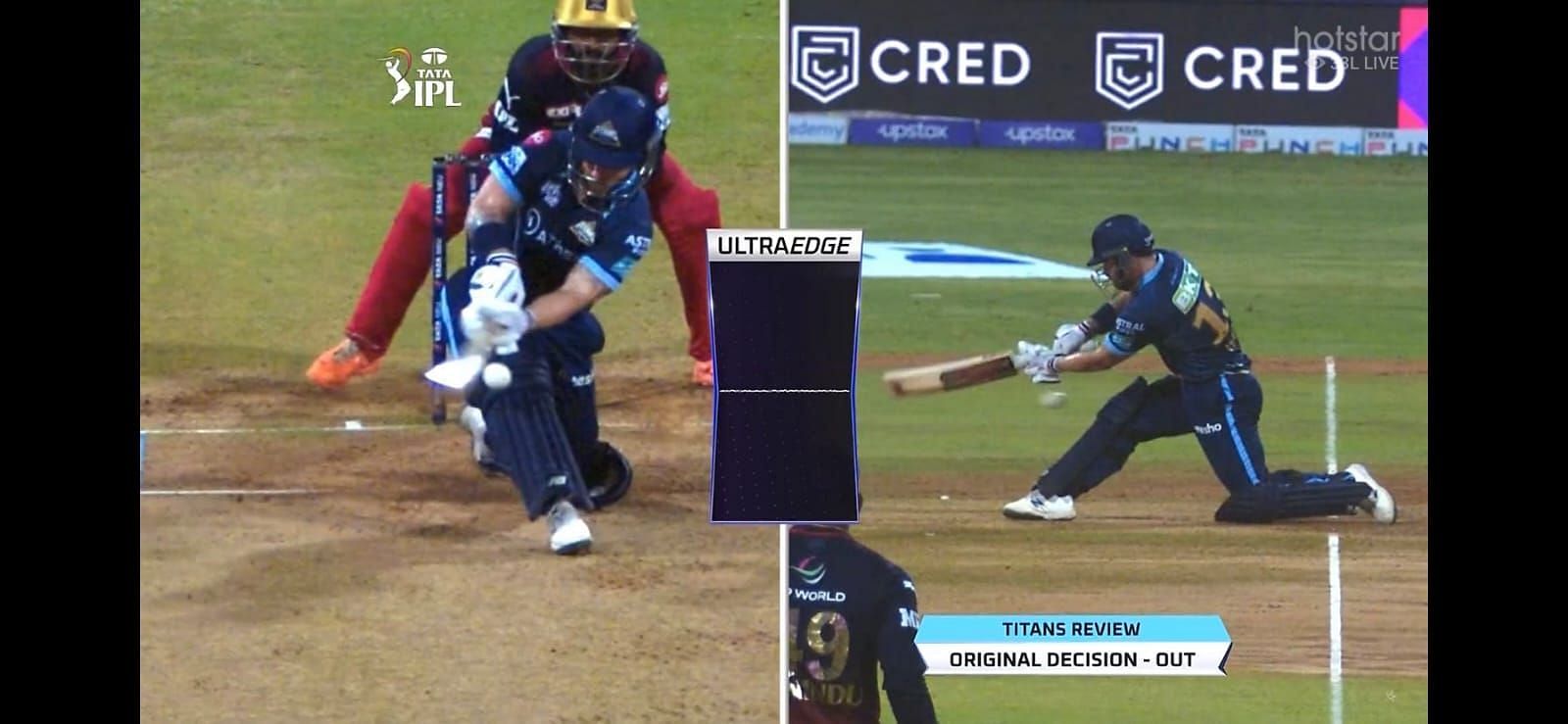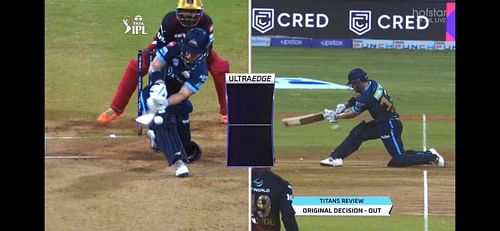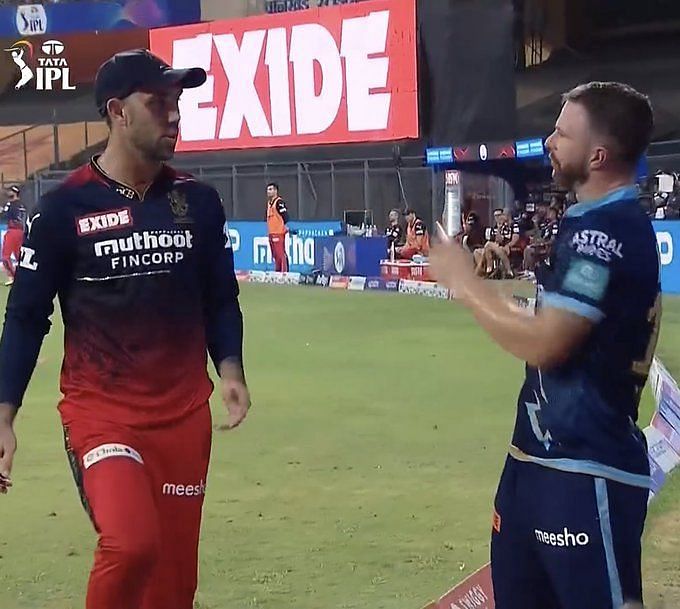
IPL 2022: How much technology is too much technology?

A few years ago, Bill Gates, who happens to be the co-founder of Microsoft, had remarked, “Humans should be worried about the threat posed by artificial intelligence.” His comments, apart from sparking a massive debate across the globe, were largely due to the advancements that have been made in technology in recent years, and how they’ve reduced human effort to a great extent.
It wasn’t entirely a dig at humans, suggesting that they can’t produce the output a machine can. Rather, it was an illustration of how easy/difficult life had become because of technology. So, with technology impacting almost every walk of life, it was only time before it left its imprint on cricket.
And hence, the Decision Review System (more commonly known as DRS) was born. It wasn’t as if it wasn’t met with scepticism. For the longest time, India and MS Dhoni were very averse to it. The argument was that DRS, because it wasn’t fool-proof, wouldn’t be very useful. The counter-argument was that it would reduce mistakes and make it as error-free as possible.
India have embraced that ideology lately, meaning that the DRS has found its way into the Indian Premier League too. Of course, with its usual blend of inexplicable decisions, questions on why the system exists altogether and if the umpires in the IPL are capable enough of utilizing it optimally.
Before Thursday, there were murmurs that those entrusted with that responsibility in the IPL just weren’t good enough. On Thursday, those morphed into clamours. Not because another DRS gaffe was made (we’ve seen many of those already this season), but because the wrong decision was arrived at despite common sense suggesting otherwise.
Check out the IPL timetable here.
Usage of DRS caused another stir in the IPL
The second ball of the sixth over saw Matthew Wade unfurl the paddle sweep against Glenn Maxwell. He planted his front foot outside off stump and played all around the delivery. The ball snuck past the bat (or so the umpire thought) and thudded into the front pad. The Royal Challengers Bangalore fielders went up in appeal and their plea was upheld.
Almost immediately, Wade opted for the DRS. In fact, he was so confident he had hit it that he marked out his guard again – even before the replays had began circulating. To his dismay, Ultra Edge – the technology which should ideally provide evidence on the involvement of wood, indicated a flat line. There was the minutest of disturbances when the ball went past the bat. But it was clearly not adequate for the umpire to say conclusively that that was a nick.
Ball Tracking technology was called into action next. Three reds and Wade, despite almost pleading to the RCB players that he had edged it, was back on his way. On a normal day, this wouldn’t even make the back page. A batter was out. He thought he was not out. But technology proved otherwise. One of the oldest three-act plays to have ever existed in the IPL or in cricket.
There is a twist to this particular story, though. While Wade was watching the Ultra Edge replays in disbelief, there was a split screen that indicated the ball changed trajectory after passing the bat. It wasn’t a small deflection either. It was significant enough to be picked up by anyone who understands how nature and the laws of physics work.
Yet it wasn’t checked adequately. If there was a reluctance to check is another matter altogether. For anyone who saw the replays, however, it was obvious, irrespective of whether you wanted to believe your eyes or not. Apart from Bollywood movies, these laws are physics are usually not in operation anywerhe. But hey, when technology is present, you shouldn’t really be using your brain, right?
Well, at least that is the brief that seems to have reached the IPL umpires. The replays were in front of third umpire Navdeep Singh Sidhu. He didn’t even have to ask for multiple spin-vision angles. Everything was there for him to come to the right conclusion. He still didn’t. It was almost as if he thought that because technology had not returned a spike, common sense could be thrown out of the window.
Getting a decision wrong in the IPL is not criminal. Officiating in the IPL is not at all a tough gig, and those who take up that responsibility deserve the highest respect. But this is what human umpires are there to avoid. It’s not because they give the most cracking decisions the IPL has ever seen. It is because they can (or rather should) see things that could disappear in some loophole of some technology.
And, when that doesn’t happen, the entire system (the DRS in the IPL in this case) feels and looks broken – broken to the point of no redemption. If technology were to be trusted blindly, human umpires in tournaments such as the IPL are anyway redundant and superfluous. So, this entire sequence, apart from showing how the umpiring standards in the IPL aren’t quite where it should be, only tells that when the situation demands, umpires should use a bit of common sense.
In the game between the Gujarat Titans and RCB, that wasn’t quite the case. And, it opened up an age-old debate of whether the DRS is doing more harm to the game than good. But remember, the on-field umpire had ruled it out, meaning that if DRS wasn’t present in the IPL, it would’ve opened up a different debate altogether.
Because it was present, and the third umpire had the opportunity to view it first-hand, it became even more perplexing. In many ways, this was the perfect example of how using technology wrongly leads to the least desired result. It even made many question how much technology is too much.
Technology, as things stand, has the capability to run the entire IPL. It will, more often than not, deliver the right conclusions and eradicate as much subjectivity as possible. But cricket is not an objective game and almost every provision leaves room for subjectivity and interpretation. So, there is clearly a job umpires in the IPL need to do, and clearly something they’ve not quite done this IPL.
As Gates said, humans should be worried about the threat of artificial intelligence moving forward. Cricket, though, at this point, should be more worried that it isn’t using whatever intelligence they are getting in the requisite manner.
It didn’t turn out to be a match-defining call on Thursday. But should we really be waiting for such elementary errors to ruin a massive cricketing occasion? Probably not.
